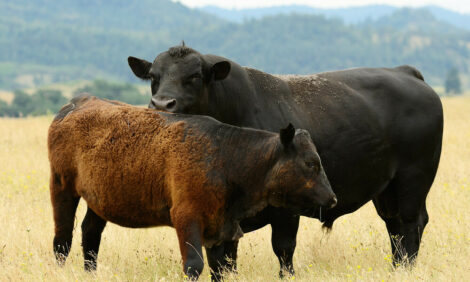



Scotland on Schmallenberg Alert
SCOTLAND, UK - Representatives of all organisations are concerned regarding the risk to the Scottish livestock industry of the novel viral disease currently threatening the sheep and cattle industry in a growing number of regions of mainland Europe and Southern England.Schmallenberg Virus (SBV) is a newly identified disease, probably spread by midges. Little is known about the disease. At this time there are no validated antibody tests available to demonstrate exposure to the virus and no vaccine is likely to be available in the near future. The over-riding priority of all organisations is to keep Scotland’s livestock free of Schmallenberg Virus.
On that basis, the group appeals to all keepers to exercise extreme caution when considering importing animals from the risk areas. Currently risk areas already extend into Belgium, the Netherlands, Germany, France, Italy and Luxembourg and more than 1000 cases have been identified.
In the UK (as of 21 February), 58 cases (55 in sheep and 3 in cattle) have now been recorded in 11 counties in the South of England. This situation is evolving rapidly and those risk areas are likely to be growing all the time. Keepers should remain vigilant to the changing profile of this disease.
At this stage, the disease is not fully understood and it is not notifiable so Scottish Government are not able to put in place import restrictions. It is up to industry to stand together and protect itself.
As a vector borne disease, import during the vector active period is higher risk and may allow the virus to become active within Scotland. The main impact is believed to be on pregnant animals and their unborn offspring. This class may be of particular risk. Animals cannot be reliably tested for SBV before importation as there is no validated antibody test available for the disease.
The above group of organisations urges Scottish livestock farmers to:
- Avoid imports from high-risk areas, but if they are unavoidable restrict those imports to the Transmission Free Period (TFP) when midges are least active. Based on historic records the TFP runs from 1 November to 30 April.
- Avoid importing pregnant animals. There is a risk that they may have been exposed to the virus and the foetus already affected.
The above group also urge Scottish livestock keepers to remain vigilant to the disease and report any suspicious abortion, malformations and neurological damage in new-born calves, lambs and kids to their vet and consider submitting material for examination. Keepers should also keep aware of the developing spread of the disease cross Europe and take this information into consideration when planning imports.
Further Reading
| |
- | Find out more information on Schmallenberg by clicking here. |
TheCattleSite News Desk


